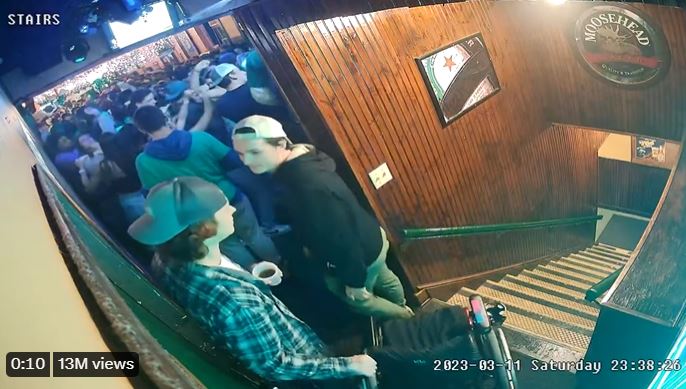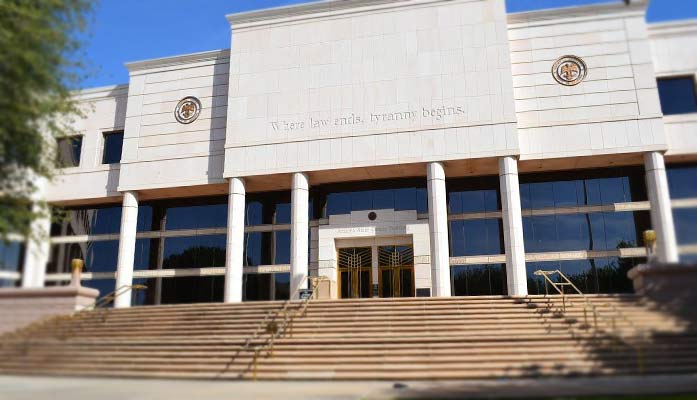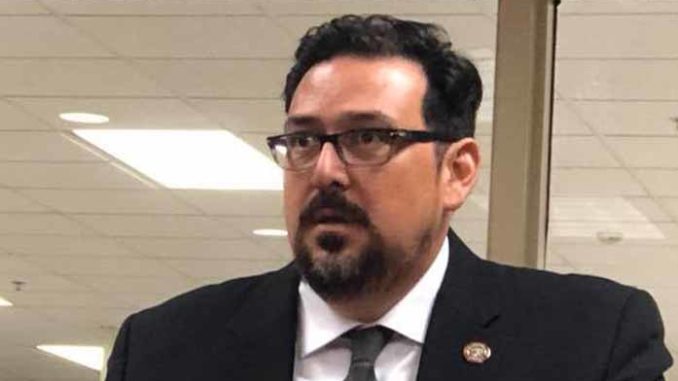
by Corinne Murdock | Mar 19, 2023 | News
By Corinne Murdock |
This past week, Pima County began offering mental health services for minors without parental consent required, through a new program called “Not Alone.” Arizona law requires written or oral consent of a parent or legal guardian prior to a minor receiving mental health screenings or treatments.
Children under 13 years old must have their parents reach out to join the program. However, the program states that children 13 years old and older may obtain services without parental consent.
The program also will withhold information from parents. Clinicians won’t disclose information about a minor’s sexuality or gender identity, or any “consensual” sexual activity for minors aged 14 through 17, and will only inform parents if their child engages in a new form of self-harm.
Only in cases of suicidal intent, sexual or physical abuse, or expressed intent and planning to harm another then the program disclosed that a clinician will break confidentiality — but the program’s confidentiality protocols didn’t explicitly state that clinicians would inform parents.
According to the Parents’ Bill of Rights, the “liberty of parents to direct the upbringing, education, health care and mental health of their children is a fundamental right” (emphasis added). Statute also dictates that attempts to “encourage or coerce a minor child to withhold information from the child’s parent shall be grounds for discipline[.]” Pima County’s webpage for the new program encourages those 13 years old or older to independently contact the program partner, COPE Community Services, for help, information, or “just to talk.” The program also offers to come meet minors wherever they’re located to assist them, or to work with them virtually.
The Pima County Health Department announced the program, “Not Alone,” last Thursday. The program receives existing Epidemiology Laboratory Capacity (ELC) K-12 Schools Reopening Grant funding provided by the Arizona Department of Health Services (ADHS).
The program specifically offers mental health services for both students and teachers diagnosed with COVID-19 after May 2021. Initial public statements on the program implied that the threat and experience of disease itself, and not the mitigation strategies such as forced school closures and distance learning, caused mental duress.
Theresa Cullen, the department director recently rejected by the Arizona legislature in her nomination by Gov. Katie Hobbs to lead the Department of Health Services, described the program in a letter as necessary to not only combat suicidal ideation in students but “compassion fatigue” for teachers.
“According to data from the Centers for Disease Control and Prevention, suicide remains the third leading cause of death for adolescents and 1 in 3 high school students reported that their mental health was not good. Teachers and staff often experience compassion fatigue, stress, and anxiety,” stated Cullen. “The ‘Not Alone’ campaign is designed to provide brief intervention treatment services for K-12 students and school faculty who have tested positive for COVID-19 since May 1, 2021,” stated Cullen.
Cullen was first appointed to the Pima County Health Department in June 2020. Senate Republicans called Cullen’s administration “repressive,” citing the curfew she imposed as one example, and noting that her policies to mitigate COVID-19 weren’t supported by science.
Overseeing the program is Matthew Schmidgall and Michael Webb, part of the department’s Youth and School Communities program. The program will also partner with several school districts to deploy an advertising campaign through social media, movie theaters, billboards, and radio.
The program also receives partnership assistance through pop star Lady Gaga’s Born This Way Foundation. The nonprofit offers a free mental health course online that awards a certificate upon completion, the “Be There Certificate,” which asks an individual which gender they “identify with,” with the option to select multiple genders and identities and if they’re transgender.
Corinne Murdock is a reporter for AZ Free News. Follow her latest on Twitter, or email tips to corinne@azfreenews.com.

by Corinne Murdock | Mar 18, 2023 | News
By Corinne Murdock |
A former Arizona State University (ASU) hockey player went viral for a video that depicts him pushing a woman’s wheelchair down the stairs at a bar in Pennsylvania. He is now under investigation by his current university for the act.
The player, Carson Briere, now plays for Mercyhurst University’s team in Erie, Pennsylvania. ASU’s hockey team dismissed Briere after the 2019-20 season, his first, due to violations of undisclosed team rules. Briere admitted in an interview with College Hockey News that his dismissal was due to “too much partying.” ASU has consistently ranked as one of the top party schools in the nation over the years.
“I was just going out; I wasn’t taking hockey seriously. It wasn’t anything bad, it was just not being committed to hockey, I was more committed to having fun at school,” said Briere. “Too much partying, that’s probably the best way to put it.”
The individual who posted the video claimed to know the owner of the wheelchair. The user disclosed that the wheelchair owner was a woman who had to leave her chair at the top of the stairs and be carried down the stairs to reach the restrooms.
According to the original poster, the wheelchair owner reportedly plans to take legal action.
Briere’s father is Daniel Briere, a former NHL hockey player and interim general manager of the Philadelphia Flyers. The elder Briere began his career in Phoenix with the Coyotes, where Briere was born. Briere committed to ASU in 2019.
The original poster behind the viral post helped organize a GoFundMe to raise funds for a new wheelchair. As of this report, the crowdfunding effort had raised over double its $1,500 goal.
Later the same day after the video was posted, Mercyhurst University issued a statement promising an investigation.
“Late this afternoon, Mercyhurst University became aware of a disturbing video in which one of our student-athletes is seen pushing an unoccupied wheelchair down a flight of stairs at a local establishment,” stated the university. “Our Office of Student Conduct and Department of Police and Safety are investigating.”
Corinne Murdock is a reporter for AZ Free News. Follow her latest on Twitter, or email tips to corinne@azfreenews.com.

by Corinne Murdock | Mar 18, 2023 | Education, News
By Corinne Murdock |
Save Our Schools Arizona (SOSAZ), a teachers union activist group, falsely claimed that public schools don’t discriminate.
SOSAZ claimed that the state’s universal school choice program was “taxpayer-funded hate” targeting LGBTQ+ children and families. They then claimed that public schools are accepting of all students.
“Public schools accept ALL students, which is why public funds belong in public schools,” stated SOSAZ.
Former Senate President Karen Fann responded to SOSAZ with a reminder that public schools do discriminate against Christians. Fann was likely alluding to the controversy with Washington Elementary School District (WESD), in which governing board member Tamillia Valenzuela — a self-identified neurodivergent queer furry — led a crusade to purge Christians from WESD.
“Wrong but we do know some public schools don’t like Christian teachers,” wrote Fann.
Valenzuela said during a board meeting last month that Arizona Christian University (ACU) didn’t align with WESD priorities because of their Christian beliefs. As a result, WESD terminated its contract with ACU to have university students complete their teaching and practical coursework at one of WESD’s campuses.
After the board voted to end its contract with ACU, Valenzuela published a celebratory post.
“I am so happy to announce that our board unanimously decided to no longer continue the partnership with Arizona Christian University,” said Valenzuela. “Thank you to our community members who made their voices heard.”
SOSAZ responded to Fann by condemning Christian schools who don’t enroll students that advocate for or practice sinful lifestyles such as adultery, fornication, homosexuality, bestiality, incest, pornography, and transgenderism. SOSAZ specifically highlighted Dream City Christian School, launched through Turning Point Academy Association and Valley Christian Schools.
Alliance Defending Freedom (ADF) sued WESD last week for its contract cancellation with ACU, alleging unconstitutional religious discrimination. ADF Senior Counsel David Cortman asserted that WESD was forcing ACU to choose between its religious beliefs and career opportunities for its students.
“Washington Elementary School District officials are causing irreparable harm to ACU every day they force it to choose between its religious beliefs and partnering with the area’s public schools,” said Cortman.
During last Thursday’s board meeting, Valenzuela claimed that those opposed to her crusade against Christians were actually bullying LGBTQ+ students. Valenzuela also claimed that sexuality exploration fulfilled one’s humanity, and that true Christianity accepted sin.
“There is a difference between acceptance and tolerance, and members of our society have been merely accepted, merely tolerated for their existence. We have watched as our children have been bullied for having autonomy,” said Valenzuela. “Know what Christ’s teachings were: it was love, it was acceptance. It was not cursing people out on Facebook and Twitter, it was not spreading misinformation.”
Valenzuela was also responsible for having all board members put their preferred pronouns — in English and Spanish — underneath their names on the dais. On her board member Facebook page, Valenzuela advocated for GLSEN: the organization attempting to sexualize minors.
Corinne Murdock is a reporter for AZ Free News. Follow her latest on Twitter, or email tips to corinne@azfreenews.com.

by Daniel Stefanski | Mar 17, 2023 | News
By Daniel Stefanski |
Democrat Governor Katie Hobbs’ propensity for politically motivated decisions continues to lead to drawn-out fights with the Republican-led Legislature.
On Wednesday, Republican legislative leaders, Senate President Warren Petersen and House Speaker Ben Toma, filed an amicus brief with the Arizona Supreme Court over the governor’s controversial action to halt the execution of Aaron Brian Gunches.
A press release from the State Senate Republican Caucus stated that “the legislative leaders filed an amicus brief with the Arizona Supreme Court to support the victim’s sister, who submitted a petition for special action last week asking the court to direct the Governor to carry out the warrant issued earlier in the month to execute Gunches.”
In announcing his filing with the state’s high court, President Petersen said, “Right now, victims’ rights protected under the Arizona Constitution are being threatened by the Governor and the Attorney General. It’s incredibly disturbing to see them unwilling to enforce the law and are siding with the most vile individuals convicted of carrying out the most heinous crimes in our state. Furthermore, the Executive Branch is clearly undermining the very foundation of separation of powers by attempting to override the statutory process adopted by the Legislature and affirmed by the Judiciary. This is a dangerous precedent to set by our newly elected Governor.”
The Senate President and the House Speaker argue that “the Governor’s unilateral executive decision threatens bedrock principles of separation of powers by usurping the statutory process established by the Legislature and affirmed by the Judiciary,” that “the decision willfully defies this Court’s mandatory order – signaling to all Arizonans that the Governor is not subject to this Court’s jurisdiction and is, in fact, above the law,” that “the Governor has effectively provided a reprieve of Gunches; death sentence without complying with the statutory limitations on her limited clemency power,” and that “the Governor’s action violates Arizona’s Victim’s Bill of Rights, stripping the victim, Ted Price’s sister, of any finality in this decades-old murder case.”
Senate President Pro Tempore, T.J. Shope, signaled his approval of the court filing, writing, “I agree 100% with President Warren Petersen on this. If we are truly caring less about the victim and their family than the criminal, we are in for years of pain and high crime.”
Petersen and Toma conclude their filing with the following plea for the Arizona Supreme Court to force the state to execute the condemned murderer: “Absent clear and specific delegation of authority from the Legislature or the Judiciary, the Executive cannot rule by fiat and choose which statutes or court orders to follow. The Governor’s actions here set a dangerous precedent, opening a Pandora’s Box and inviting litigation every time she disagrees with a jury’s verdict, a court order, or other statutory mandates passed by the Legislature.”
The saga over Gunches execution started in late-2022, when former Arizona Attorney General Mark Brnovich asked the Arizona Supreme Court for a warrant of execution. After the January 2 transition of power to Katie Hobbs and new Attorney General Kris Mayes, the state desperately attempted to reverse the actions that set Gunches’ execution process into motion. These efforts proved to be unsuccessful, however, when the high court did, in fact, grant the warrant of execution, ordering the state to put Gunches to death on April 6. The governor refused to comply with the court-issued warrant, stating that the State would not be seeking to carry out the execution at this time. Hobbs’ decision triggered court filings from Maricopa County Attorney Rachel Mitchell and Petersen and Toma.
The Arizona Supreme Court is expected to take expedient action in this case with a life and a court-imposed date of execution hanging in the balance.
Daniel Stefanski is a reporter for AZ Free News. You can send him news tips using this link.

by Corinne Murdock | Mar 17, 2023 | Education, News
By Corinne Murdock |
On Wednesday, the state’s teachers union protested against the Arizona Department of Education’s newly-launched hotline for parents to report inappropriate class materials.
The Arizona Education Association (AEA) had educators and activists march around the state capitol and ADE building, holding signs and chanting. Some signs read, “Stand with Educators,” and “Stop the Attacks.”
AEA also issued a letter on Wednesday to ADE Superintendent Tom Horne. The activists delivered a copy of the letter to the ADE office following a short speech outside the building. The AEA characterized the hotline as another political game.
The body of the letter is reproduced below:
Consider this an open invitation to visit Arizona schools and meet with educators. Come see for yourself the hard work, expertise and passion that go into each day. The constant attacks, along with low wages and underfunded classrooms, are causing far too many of our colleagues to leave the profession and the state. Our students and our schools deserve better. Take down the ‘hotline.’ Stop the attacks and stand with us.
Horne told Fox News on Wednesday that he was aware of the hotline’s unpopularity with certain groups, and criticized the teachers that participated in the protest. The superintendent implied that those teachers protesting were opposed to transparency and accountability.
“I served 24 years on a school board, and our rule was anybody could come in and watch the teaching, and the teachers never complained because they were proud of what they were doing, so those who are protesting, maybe they are not so proud of what they’re doing,” said Horne.
ADE launched the hotline last Tuesday. The department clarified in a corresponding press release what qualified as inappropriate school lessons: those focused on race or ethnicity, rather than individuals or merit; promoting gender ideology; social-emotional learning (SEL); or sexual content. ADE cited our reporting as an example of those committed to teaching inappropriate materials, in which AZ Free News documented over 200 educators who signed onto a statement proclaiming that they would teach outlawed materials like Critical Race Theory (CRT) even if banned.
ADE stated that the hotline represented their administration’s commitment to transparency and empowering parents.
Under former Superintendent Kathy Hoffman, ADE’s commitment to transparency looked slightly different. As AZ Free News reported in January, the former administration neglected the state’s school choice program: it had less than one-third of the staff designed to run the program and nearly 171,600 unfulfilled expense requests, despite receiving millions in additional funding for hiring and operation expansions.
AEA President Marisol Garcia claimed that the hotline would invite harassment of educators, and allow for accusations to be vulnerable to open records requests.
“Inviting the harassment of educators, without due process at their local level, with the ability of these ‘accusations’ to be FOIA’d?” asked Garcia. “As if nothing bad is going to happen here?”
Teachers union members and supporters filled the Capitol following the march.
Corinne Murdock is a reporter for AZ Free News. Follow her latest on Twitter, or email tips to corinne@azfreenews.com.

by Corinne Murdock | Mar 16, 2023 | Education, News
By Corinne Murdock |
Arizona Secretary of State Adrian Fontes advocates for keeping porn-laden books in K-12 classrooms.
Fontes claimed that those opposed to sexually explicit content in classrooms were insecure and that the concept was “anti-American.”
“If you’re so insecure in your beliefs that you think you have to ban books, perhaps you should revisit the actual strength of your ideas and values,” tweeted Fontes. “Banning books is anti-American.”
Fontes remarks were indirectly aimed at SB1700, which requires the Arizona Department of Education (ADE) to create and upkeep a list of banned schoolbooks posted to their website and authorize parents to submit for inclusion on the ADE banned book list any books containing lewd, sexual, gender fluidity, gender pronouns, grooming, or pedophilia normalization content.
State Sen. Justine Wadsack (R-LD17), the bill sponsor, accused Fontes of not reading the bill.
“SB1700 doesn’t ‘ban books,’” tweeted Wadsack. “It protects the innocent hearts and minds of children from indoctrinated porn being taught in their public government schools. Stop sexualizing children. Parents have had enough!”
The Senate passed SB1700 last Thursday without vocal opposition from Democrats. However, Democrats argued during the Senate Education Committee that State Sen. Sally Ann Gonzales (D-LD20) claimed that the bill would prevent children from learning about basic anatomy. Wadsack dismissed that claim, noting that the focus of the bill was to keep lewd content out of schools.
Elijah Watson — an activist with Civic Engagement Beyond Voting, and former activist with the Arizona Democratic Legislative Campaign Committee and Arizona Democratic Party — claimed that the bill’s aim to ban porn was a “slippery slope” to censorship of great literary classics like “Of Mice and Men.” Watson said that the bill would ultimately prevent “tough but necessary discussions.”
Lisa Fink, president for Protect Arizona Children Coalition, testified that multiple books that would likely be subject to the prohibited books list included depictions of both children and adults in sex acts. One book highlighted by Fink, “Beyond Magenta,” depicts a six-year-old enjoying oral sex.
“Alarmingly, there is no immediate clarification for these pictures that this is illegal and damaging behavior,” stated Fink. “The book displays graphic language, violent sex, and graphic depictions of oral sex committed by children.”
Chris Kotterman representing the Arizona School Boards Association (ASBA) claimed that this was “unprecedented state control of curriculum.” Kotterman issued a veiled warning that the ADE wouldn’t always be run by a Republican individual, indicating that the prohibited books list would be weaponized against those advocating against sexualized content.
A group of transgender activists argued in opposition to the bill.
Erica Keppler, a transgender individual, claimed that gender fluidity is a “natural phenomenon.” Keppler claimed that any book using any pronouns, even in their correct usage, would be subject to the bill’s ban. Austin Davidson, another transgender individual, said that books affirming the lifestyles of fellow transgender individuals were necessary.
Alicia Messing, who signed a pledge to teach Critical Race Theory regardless of law or parental consent, said that teachers should dictate what students learn, not parents. Messing’s remarks made national headlines.
“We all have advanced degrees. What do the parents have? Are we vetting the backgrounds of our parents? Are we allowing the parents to choose the curriculum and the books that our children are going to read? I think that is a mistake,” said Messing.
It’s unlikely that any legislation of this nature — wholeheartedly supported by Republicans and opposed by Democrats — will become law. Gov. Katie Hobbs has engaged in a veto streak against Republican-led legislation.
Corinne Murdock is a reporter for AZ Free News. Follow her latest on Twitter, or email tips to corinne@azfreenews.com.






